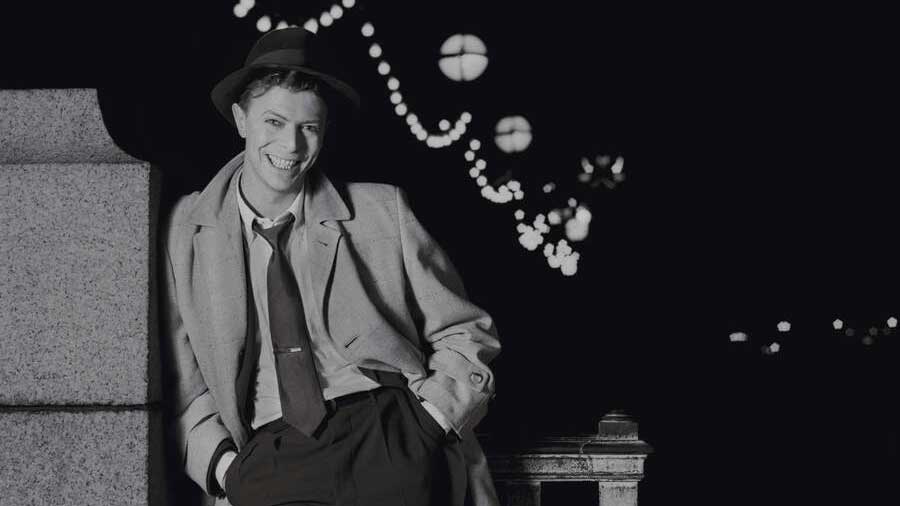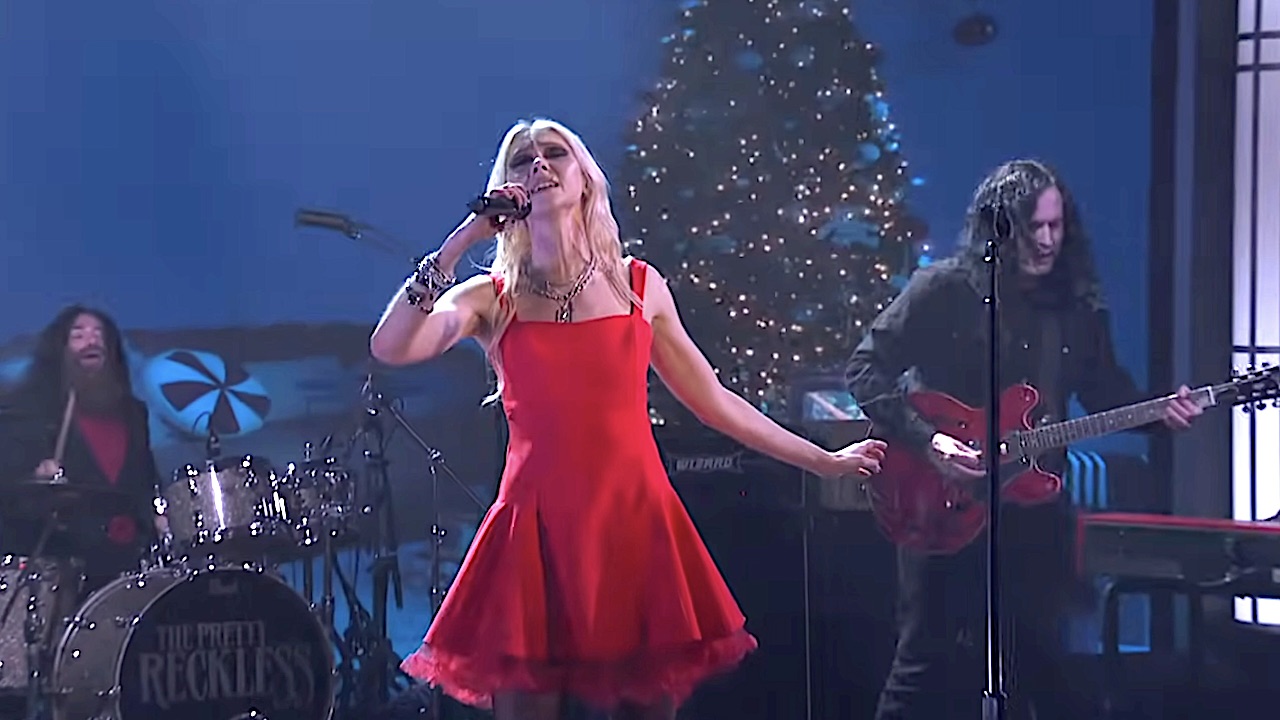"I need a girl who sounds like a shop girl to duet with me": How a retail assistant at Dorothy Perkins got to sing with David Bowie
Originally written at a clandestine recording session, Absolute Beginners was the start of a 10-year musical relationship

Having crafted his enduring legend in the 70s, David Bowie had never been anywhere near as commercially successful as he was in the early 80s. 1983’s Let’s Dance album was huge, its accompanying six-month Serious Moonlight tour enormous.
Its ’84 follow-up Tonight did similar business, but behind the scenes Bowie was facing something of a writer’s block. Aside from Tonight’s singles (Loving The Alien, Blue Jean) all of its constituent material were co-writes (largely with Iggy Pop) and covers. Bowie needed inspiration. So when in the spring of ’85 film director Julien ‘The Great Rock ’N’ Roll Swindle’ Temple approached him to write the theme song for his ambitious musical adaptation of Colin MacInnes’ classic 1959 proto-mod novel Absolute Beginners (and to play the part of Vendice Partners) he leapt at the chance.
Meanwhile, former Thomas Dolby sideman Kevin Armstrong’s career was in free fall. “In the shitter, to be honest,” admits the guitarist, with rather more cheeriness than one might expect. Groomed for solo stardom by EMI, Armstrong had a debut album already recorded (which he owned outright), video made, name remixers and band in place, but “it all came crashing down”.
While in a state of ‘Well, what do I do now?’ the phone rang. It was Hugh Stanley-Clarke, an A&R man at EMI, who simply stated: “Go to Abbey Road. Take a guitar. You’ll thank me later.”
“We weren’t told who we were there to play for,” Armstrong says, “We were just a bunch of mid-level jobbing musicians who were told: ‘Go to Abbey Road, Mr X will turn up. He’s not supposed to be in the country for tax reasons, so we’re not allowed to tell you who it is.’”
Anyway, you’re probably ahead of me now – Mr X was David Bowie. “He didn’t need name players, just functional musicians to do some demos with."
The first track the band worked on was That’s Motivation (Bowie’s other contribution to the Absolute Beginners soundtrack). A complex piece, Bowie taught the musicians each segment in isolation, committing it to tape before moving onto the next section. A tortuous process, but it worked. With time remaining at the end of the session, Bowie said: “I’ve got this idea for a song, there’s still some time on the clock, let’s try and work it up.”
Sign up below to get the latest from Classic Rock, plus exclusive special offers, direct to your inbox!
“So I sat down with him,” remembers Armstrong, “with an acoustic guitar, with him writing lyrics on a pad. He already had some lyrics and most of the song, but he didn’t have the complete structure.”
Fifteen minutes later, the band were recording a demo of Absolute Beginners’ ultimate arrangement. “Listening to the playback, all of us were going: ‘My god, what a tearjerker.’ We knew it was going to be something good.”
Bowie was equally impressed, and invited Armstrong, bassist Matthew Seligman and drummer Neil Conti to appear on the actual Absolute Beginners recording session to be held the following week with co-producers Clive Langer and Alan Winstanley. Almost as an afterthought, Bowie added: “I also need a girl, that sounds like a shop girl, to duet with me.”
“So me,” Armstrong remembers, “being a snottily confident young person wanting to get my oar in, said: ‘My sister works in Dorothy Perkins.’ And without hesitation he said: ‘Get her in.’ He didn’t say have you got a tape or a picture, just ‘Invite her along, she’s in.’”
Janet Armstrong had sung with a few punk bands, most notably the Normil Hawaiians, but this was off the charts; the stuff of fairy tales. And yes, that is her singing on the record.
Much of what might appear to be additional ornature added in the track’s ultimate incarnation was actually there from the very beginning, not least its defining introductory ‘Bop-bop-ba-ooh’ vocal refrain. Also key to the final version’s enduring appeal, Rick Wakeman, an occasional Bowie collaborator since ’69’s Space Oddity, whose florid piano stylings (almost ABBA-esque on the climactic choruses) entered the fray.
“It was an exciting day in the studio,” Armstrong recalls, “because Bowie wasn’t the only artist in the building on the day recording their parts for Absolute Beginners. Jerry Dammers, Slim Gaillard, even Mick Jagger. That’s Motivation, Absolute Beginners and Dancing In The Street (the duet Jagger and Bowie recorded for transmission during Live Aid) were all done at the same session, in the same studio with the same band. Then, when all the productive work had been done, we were all put on buses with bottles of wine, to Docklands to watch David and Mick poncing about doing the Dancing In The Street video.”
With Absolute Beginners in the can, topped off with an expressive saxophone solo from Alan Price sideman Don Weller, Armstong set to work on another project Bowie had casually dropped into his lap at Abbey Road: to put a live band together for “this charity show I’ve been asked to do”.
So, yes, that would be Live Aid, then. The Global Jukebox. A show watched by an estimated 1.9 billion… “This charity show I’ve been asked to do.”
A mere fortnight prior to meeting with Bowie and Jagger to discuss their recording of Dancing In The Street, Armstrong was effectively homeless, his career in tatters: “I think I probably would have found a way forward without it, but obviously that phone call putting me in touch with Mr X was a massive kick up the arse.”
Kevin Armstrong went on to work with Bowie for the next 10 years.
Kevin Armstrong’s autobiography Absolute Beginner: Memoirs Of The World's Best Least-Known Guitarist is published by Jawbone.

Classic Rock’s Reviews Editor for the last 20 years, Ian stapled his first fanzine in 1977. Since misspending his youth by way of ‘research’ his work has also appeared in such publications as Metal Hammer, Prog, NME, Uncut, Kerrang!, VOX, The Face, The Guardian, Total Guitar, Guitarist, Electronic Sound, Record Collector and across the internet. Permanently buried under mountains of recorded media, ears ringing from a lifetime of gigs, he enjoys nothing more than recreationally throttling a guitar and following a baptism of punk fire has played in bands for 45 years, releasing recordings via Esoteric Antenna and Cleopatra Records.

